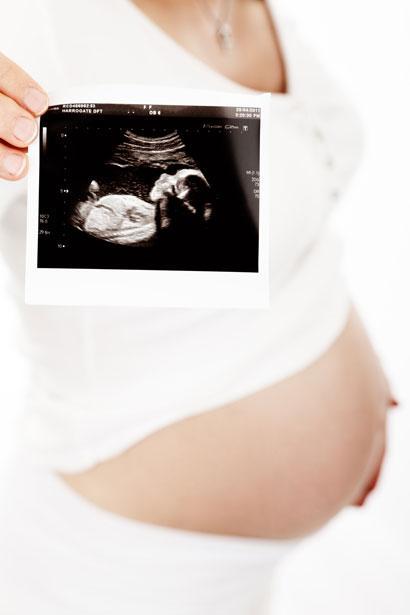What You Should Know About Choroid Plexus Cysts
Article Content
Why Not To Freak About Choroid Plexus Cysts Right Away
One of the most irresponsible things healthcare professionals can do is instill fear in their patients. Take my experience for instance finding out that my 20 week old (by gestational age standards) baby had the:
Presence of bilateral choroid plexus cysts. Follow-up study in one month is suggested as
indicated.
Doing some research (as a worried mother is want to do) I learned that choroid plexus cysts are a very common occurence in the cranium of developing babies. In my case there were two, both less than 1 cm in size.
What I found out about them is that they are a part of a baby’s development, similar to how women will develop an ovarian cyst in the beginning of pregnancy to assist in the development of the womb, etc. They are not common in most pregnancies, but the risk of them becoming something harmful to your baby is equally uncommon.
The choroid plexus cysts are usually water-filled and disappear by around your 32nd week of pregnancy.
Here are links to websites and forums where I learned more about choroid plexus cysts:
Greater Baltimore Medical Center
University of North Carolina at Chapel Hill School of Medicine
University of California San Francisco Medical Center
Why Choroid Plexus Cysts Can Be Scary
The scary part about choroid plexus cysts is that they can mean your baby could be born with severe mental retardation and other problems with their organ systems:
“The precise rate of risk is difficult to estimate and is somewhat controversial, but most doctors believe it is well under 1 percent. In other words, a fetus with choroid plexus cysts but an otherwise normal ultrasound has a better than 99 percent chance of not having trisomy 18. A normal alpha fetoprotein (AFP) test further reduces the likelihood of trisomy 18.
Trisomy 18 is a chromosome disorder in which a baby is born with an extra copy of chromosome 18, which leads to complications like being born with severe mental retardation and problems with organ systems.
An OBGYN who is a part of my primary OBGYN’s practice wanted me to go get a genetic type of ultra sound in two weeks. That seemed really soon given these facts:
- the radiologist indicated in the results to follow up in a month (which usually means 4 weeks)
- choroid plexus cysts tend to disappear as far as the 32nd week of pregnancy (which would be 11 weeks later for me at this point)
- there’s nothing we could do to change the outcome for our baby with extra testing (we would love them no matter what)
- sure abortion is always an option, but to me it would be unethical and not something I would do
So I told the member of said OBGYN’s team (who didn’t identify herself either by name or role) that I would feel more comfortable getting a second opinion from my primary OBGYN before making a decision. The way she just wanted to give me the number to this far away center to schedule the testing and didn’t even give the full scope of risk and non-risk was disappointing. It is these types of healthcare professionals who instill this fear that is so systemic in American culture to not question and simply do whatever they recommend. The entire ultra sound was normal, and based on medical sites, having no other findings in an ultra sound usually means your baby will be fine.
Do What You Feel Is Right
I keep hearing this advice from moms of all generations, and that is to do what feels right. Some moms are really vehement when they tell me not to let other voices (not even my doctor’s) make me doubt myself. I really appreciate the feedback, but it’s hard to follow the advice. I may be twenty-eight years old, and on many matters I don’t have this compulsion, but because my mom works in healthcare and is the reason I am here today, in matters of health I feel a strong compulsion to get her opinion.
Doing what feels right is a double edged sword, and this is only the beginning of feeling the sharp edges when it comes to making decisions as a mother. All I can do is get as much information as I can, weigh the outcomes and consequences of different decisions, and make the most informed decision with which I can bare to live with myself.
The funny thing about all of this…if I hadn’t wanted to learn the sex of our baby, we wouldn’t have also learned about the two cysts. Lucky for me, I have a husband who comforts me at points when I doubt my logic.

